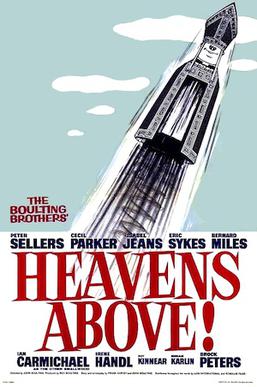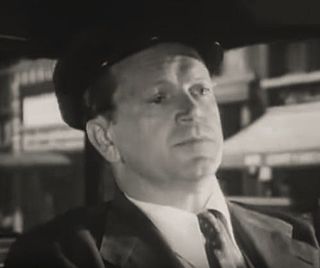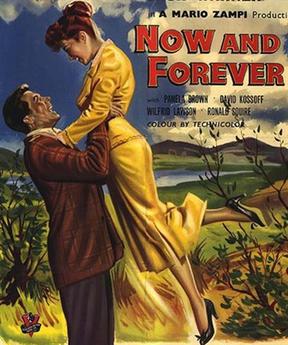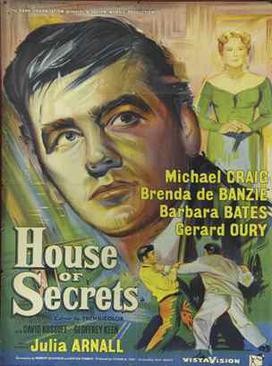
Duncan William Ferguson Lamont was a British actor. Born in Lisbon, Portugal, and brought up in Scotland, he had a long and successful career in film and television, appearing in a variety of high-profile productions.

Heavens Above! is a 1963 British satirical comedy film starring Peter Sellers, directed by John and Roy Boulting, who also co-wrote along with Frank Harvey, from an idea by Malcolm Muggeridge. It is in a similar vein to the earlier collaboration between Sellers, Harvey and the Boultings, I'm All Right Jack.

Roy Cameron Jenson, also known and credited as Roy Jensen, was a Canadian American football player, stuntman, and actor.

The Magic Box is a 1951 British Technicolor biographical drama film directed by John Boulting. The film stars Robert Donat as William Friese-Greene, with numerous cameo appearances by performers such as Peter Ustinov and Laurence Olivier. It was produced by Ronald Neame and distributed by British Lion Film Corporation.

Mona Lee Washbourne was an English actress of stage, film, and television. Her most critically acclaimed role was in the film Stevie (1978), late in her career, for which she was nominated for a Golden Globe Award and a BAFTA Award.

Murray Alper was an American actor. He appeared in numerous television series, films, and Broadway productions.

Norman Rossington was an English actor best remembered for his roles in The Army Game, the Carry On films and the Beatles' film A Hard Day's Night.

George Arthur Woodbridge was an English actor who appeared in films, television, and theatre ranging from the 1930s to the 1970s. Woodbridge's ruddy-cheeked complexion and West Country accent meant he often played publicans, policemen or yokels, most prominently in horror and comedy films alongside Christopher Lee and Peter Cushing.

Richard Michael Wessel was an American film actor who appeared in more than 270 films between 1935 and 1966. He is best remembered for his only leading role, a chilling portrayal of strangler Harry "Cueball" Lake in Dick Tracy vs. Cueball (1946), and for his appearances as comic villains opposite The Three Stooges.

The Crowded Day is a 1954 British comedy drama film directed by John Guillermin and starring John Gregson, Joan Rice, Cyril Raymond and Josephine Griffin. The film follows a group of shopgirls working in Bunting and Hobbs, a London department store, during the Christmas shopping season. It was an attempt by Adelphi Films to move into bigger budgeted films. It was the last movie Guillermin directed for the company. It was released in the United States under the title Shop Spoiled.

An Alligator Named Daisy is a 1955 British comedy film directed by J. Lee Thompson and starring Donald Sinden, Jeannie Carson, James Robertson Justice, Diana Dors, Roland Culver and Stanley Holloway.

Doctor in Love is a 1960 British comedy film, the fourth of the seven films in the Doctor series, starring James Robertson Justice as Sir Lancelot Spratt and Michael Craig as Dr Richard Hare. This was the first film in the series not to feature Dirk Bogarde, although he did return for the next film in the series Doctor in Distress. It was loosely based on the 1957 novel of the same title by Richard Gordon.

As Long as They're Happy is a 1955 British musical comedy film directed by J. Lee Thompson and starring Jack Buchanan, Susan Stephen and Diana Dors. It is based on the 1953 play of the same name by Vernon Sylvaine. It was shot in Eastmancolor at Pinewood Studios near London with sets designed by the art director Michael Stringer.

One Good Turn is a 1955 British comedy film directed by John Paddy Carstairs and starring Norman Wisdom, Joan Rice, Shirley Abicair and Thora Hird. The main setting of the film is an English children's home, located south of London.

Simon and Laura is a 1955 British comedy film directed by Muriel Box and starring Peter Finch and Kay Kendall.

The Lost Hours is a 1952 British film noir directed by David MacDonald and starring Mark Stevens, Jean Kent and John Bentley. It was produced by Tempean Films which specialised in making second features at the time, and marked Kent's first descent into B films after her 1940s stardom. It was shot at Isleworth Studios and on location around London. The film's sets were designed by the art director Andrew Mazzei. It was released in the United States the following year by RKO Pictures as The Big Frame.

Barnaby Rudge is a British drama television series which originally aired on the BBC in thirteen episodes between 30 September and 23 December 1960. It was an adaptation of the 1841 novel Barnaby Rudge by Charles Dickens set against the backdrop of the 1780 Gordon Riots. The series survived the BBC's purge of the archives and was released on DVD in the USA around 2010, and later in the UK in 2017 by Simply Media. As well as being the only BBC adaptation, it remains the latest on-screen adaptation of the novel on film or television to date.

Now and Forever is a 1956 British drama film directed by Mario Zampi and starring Janette Scott, Vernon Gray and Kay Walsh. It is based on the play The Orchard Walls by R.F. Delderfield, and was Scott's first adult role after a career as a child star in Britain. The screenplay concerns an upper-class girl who becomes romantically involved with a garage mechanic, and they head for Gretna Green to elope.

It's Hard to Be Good is a 1948 British comedy film directed by Jeffrey Dell and starring Jimmy Hanley, Anne Crawford and Raymond Huntley. In the film, an ex-army officer finds his altruistic attempts to improve the world are unsuccessful.

House of Secretsis a 1956 British crime thriller film directed by Guy Green and starring Michael Craig, Anton Diffring and Gérard Oury. It was filmed in Technicolor and VistaVision. It was shot at Pinewood Studios near London and on location in Paris and Marseille. The film's sets were designed by the art director Alex Vetchinsky while the costumes were by Julie Harris.




















